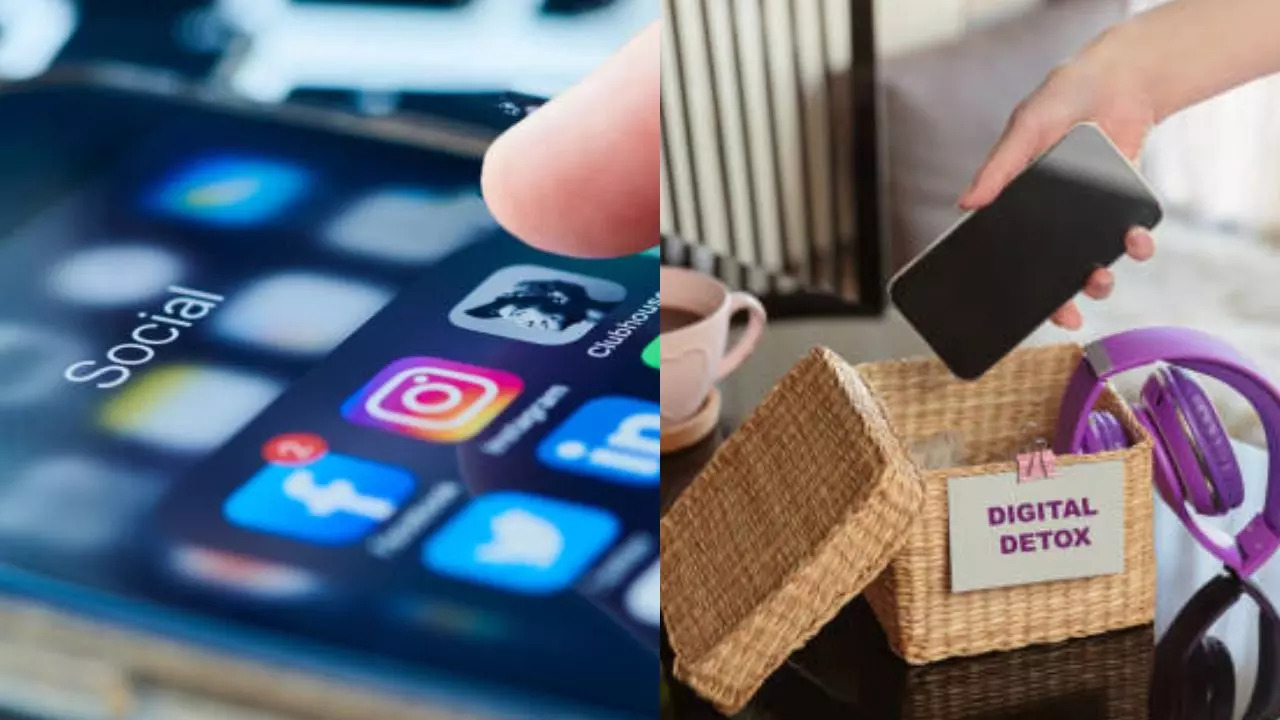-
news
-
Health
-
mental health
What happens to your brain when you stop using social media?
Social media is central to modern life, providing entertainment, connectivity and instant information. However, this often puts a strain on mental health, affecting self-esteem, focus and sleep quality. We contacted a mental health expert who explains that a break from social media can reduce anxiety, improve productivity and foster healthy relationships in real life, leading to lasting mental health benefits.

What happens to your brain when you stop using social media (Image credit: iStock)
Social media has become the most important part of our lives. From scrolling through Reels for hours to waiting to receive validation through likes, we’ve all been stuck. Although these platforms have provided easy access to information, entertainment and connectivity; They have also had a profound impact on our mental health. Stepping away, even just for a short while, sometimes makes us feel anxious or makes us feel neglected. Although it helps us stay in touch with our loved ones but it is taking a toll on us mental health In ways we can’t even imagine.
But what happens when we stop using social media? Does it help in enhancing our mental health? To get answers, we contacted Dr. Muniya Bhattacharya, Consultant-Psychologist, Marengo Asia Hospital, Gurugram. Here’s what he says!
1. Reduction in anxiety and stress
Social media is a source of stress and anxiety for many people. With constant notifications, comparisons, and the need to maintain an online presence, our minds remain active. By stopping yourself from using social media, you free yourself from the triggers that trigger these things. Without endless scrolling, people have claimed they feel much less overwhelmed and relaxed.
The primary reason for such a decline in the feeling of inadequacy and apprehension is usually the end of such comparisons by people with the highlight reels of others. Reducing performance time means rebooting your brain for a more calm approach to performance in completing daily tasks.
2. Better concentration and productivity
The defining characteristic of social media is its addictive nature. Often, this attracts people to long scrolling sessions, thus distracting them from other activities, which, apart from wasting time, can also affect their concentration. While away, one realizes that they actually have time and mental capacity for the things that matter. With fewer interruptions, people focus better on tasks and projects and, therefore, are more productive.
Studies also show that even a short break from social media can increase concentration as the mind will no longer be constantly focused on another activity in between. This change can benefit most students, working professionals or even anyone who needs to get work done.
3. Improved self-esteem and body image
Social media is a huge destroyer of self-esteem, especially on apps like this. Instagram Where most of the photos are highly edited. People soon start comparing real life with the virtual world and get misled by what they see online. When someone doesn’t have social media, comparisons are reduced and most people have a better self-concept and body image. This will give you time to remember your values and priorities instead of focusing on what people like, share, and follow you. For some people, this break may be the beginning of a healthy relationship with themselves.
4. Sleep quality
Better use of social media before sleeping at night will prevent disruption in quality sleep. The blue light from computer screens will reduce melatonin production, making you less likely to fall asleep during the night. Furthermore, conversations on social media stimulate your brain and keep it more active at a time when you should be resting.
By turning off social media, especially at night, you can fall asleep faster and improve your chances of getting better rest. A good night’s sleep enhances mood, cognitive functioning and overall state of physical well-being.
5. More mindfulness and presence
Social media is separating the individual from his or her present, shifting attention away from real-life experiences toward virtual encounters. It becomes much easier when you leave social media and related entourage and connect with the present environment. Similarly, relationships with friends and family become closer because your presence and encounters are more likely to be the focus. People who delete their social media for a period of time also have a greater perceived appreciation for everyday moments. Increased awareness often contributes to overall happiness and satisfaction.
6. Increase real world engagement
Although designed for connection, in some cases social media can lead to a disconnect that can leave a person feeling lonely. Stopping from using social media increases the need to connect or engage with people on a real level or even a deeper level. With increased time and mental clarity, most people invest in real-life relationships that strengthen their connections with friends and family.
“Taking time off from social media can refresh your mind. It can reduce anxiety, improve your concentration, boost your self-esteem, enhance your mindfulness, help you sleep better and improve your real-life relationships. Is. “Whether it’s for a day, a week or forever, the positive effects of taking a break from social media can be strong and lasting,” he said.
Get the latest news live on Times Now with breaking news and top headlines on mental health, wellness and more from around the world.
Instagram
mental health


